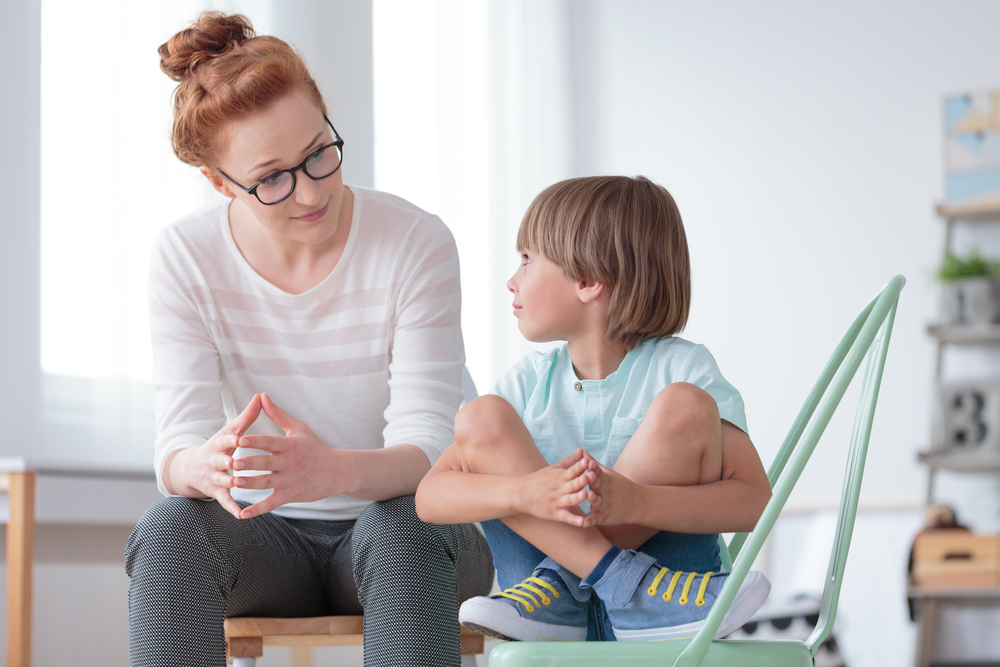Mental Health America explains that “Good mental health allows children to think clearly, develop socially and learn new skills. Additionally, good friends and encouraging words from adults are all important for helping children develop self-confidence, high self-esteem, and a healthy emotional outlook on life.” Michigan University identifies the following twelve steps to positive child mental health:
- Value yourself: Avoid self-criticism, treat yourself with respect, and carve out time to engage in activities that bring you joy.
- Surround yourself with good people: Young people that maintain social connections are generally healthier than those who lack a support network.
- Keep physically active: Exercising can increase levels of certain neurotransmitters (e.g., serotonin and norepinephrine) in the brain, boosting one’s mood. The Academy of Neurological Therapy asserts that “exercise has been shown to help improve and prevent many conditions, including: weight management, stress levels, emotional regulation/ mood, memory, attention, strength, endurance, balance, flexibility, and blood pressure regulation.”
- Get enough sleep: Prioritizing sleep hygiene involves going to bed at a decent time to give your body and mind sufficient rest. Cultivating healthy sleep habits can help you stay mentally, physically, and emotionally fit. Further, evidence indicates that “when one sleeps, the brain reorganizes and recharges itself, and removes toxic waste byproducts which have accumulated throughout the day.”
- Eat nutritiously: Eating healthy snacks and well-balanced meals can help give your body the essential minerals and nutrients required to function at its best.
- Stay hydrated: Water is essential for survival, particularly because it makes up over two-thirds of the healthy human body. Water lubricates the joints and eyes, aids digestion, flushes out waste and toxins, and keeps the skin healthy. Experts recommend drinking a minimum of 64 oz of water, daily.
- Get creative: According to research, creative activities can positively affect adolescents’ behavioral changes, self-confidence, and self-esteem.
- Give yourself: Dedicating oneself to others through activities such as volunteering produce greater joy which can be directly linked to one’s positive psyche.
- Learn how to deal with stress: Try out different stress reducing tactics and relaxation exercises (e.g., going on a nature walk, reading, listening to music, journaling, etc.). Several studies, for example, have confirmed that practicing yoga can have positive effects on adolescents who have anxiety disorders and stress.
- Set realistic goals: While there are benefits to aiming high, it is advantageous for a young person to start small. Unattainable goals only set an adolescent up for failure. Setting and achieving smaller goals can boost self-confidence, self-reliance, and independence.
- Learn a new skill: Humans are hard-wired to experience joy when experiencing novelty. Learning and mastering a new skill can help an adolescent build self-confidence.
- Quiet your mind: Mindfulness techniques like meditation and deep breathing can improve your state of mind and outlook on life. Research has found that practicing deep breathing exercises can effectively help with relaxation, stress management, control of psychophysiological states, and improve organ function.
Child mental health is intertwined and often informed by behavioral health. While one’s mental health encompasses several factors (e.g., one’s biology, one’s psychological condition, and one’s habits) behavioral health examines how one’s habits impact one’s overall physical and mental wellbeing. Good behavioral health means engaging in behaviors that help to achieve an ideal mental and physical balance. The above steps can help to cultivate and nurture positive child mental health.
Further Information and Support
For most of us, life can be very stressful, leading us to feel emotionally charged, which can cause anxiety, panic attacks, depression, and getting stuck in a cycle of being burdened with negative thoughts. Navigating through the challenges and emotional turmoil of life can be overwhelming, but you do not have to go through it alone. Engage Treatment is a Joint Commission Accredited professional psychological practice. We specialize in treating children, teens, and young adults struggling with depression and anxiety through community-focused treatment plans that incorporate a carefully selected combination of therapeutic interventions. Our compassionate, multidisciplinary practitioners are devoted to providing the highest quality of care that helps ignite positive change and enables clients to reach optimal health and well-being. Please do not hesitate to reach out for guidance. We are happy to answer questions and provide you with any additional information. Feel free to call us at 805-497-0605 or email us at [email protected]. You are also welcomed to get in touch by filling out our contact form. We look forward to connecting and having the opportunity to discuss how we might best be able to support you.

